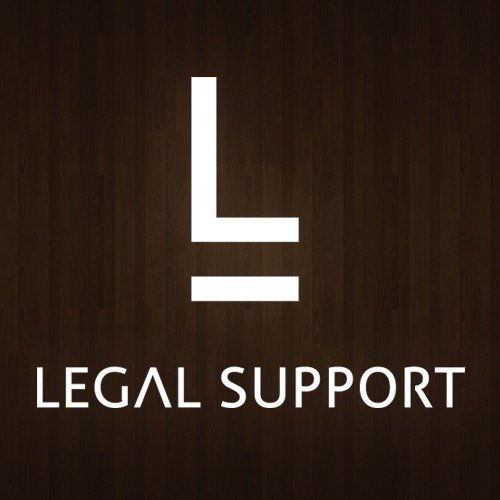Best Debt & Collection Lawyers in Riga
Share your needs with us, get contacted by law firms.
Free. Takes 2 min.
List of the best lawyers in Riga, Latvia
About Debt & Collection Law in Riga, Latvia
Debt & Collection law in Riga, Latvia governs the rights and obligations of creditors and debtors in cases involving unpaid debts. It encompasses various legal processes and procedures for recovering outstanding debts, such as negotiations, settlement agreements, and litigation. Understanding the basics of Debt & Collection law is crucial for both creditors and debtors to protect their interests and ensure fair resolution of financial disputes.
Why You May Need a Lawyer
While it is possible to handle certain debt-related matters on your own, there are situations where seeking legal assistance becomes necessary. Here are some common scenarios where you may need a lawyer:
- Debt collection agencies are relentlessly pursuing you for repayment
- You have been sued by a creditor over a debt
- You need guidance on negotiating with creditors to establish repayment plans
- You suspect you have been wrongly accused of owing a debt
- You are a creditor seeking legal assistance to recover outstanding debts
Local Laws Overview
When dealing with Debt & Collection matters in Riga, Latvia, it is important to be aware of these key aspects of local laws:
- The Law on Debt Recovery regulates the process through which creditors can legally pursue overdue debts. It outlines the rights and obligations of both parties involved in the debt recovery process.
- Riga, Latvia follows a civil law system, meaning that disputes related to debts and collections are usually resolved through civil court proceedings rather than criminal court.
- There are certain regulations on the maximum interest rates and fees that can be charged by creditors when collecting debts.
Frequently Asked Questions
1. Can a debt collection agency seize my property without my consent?
No, a debt collection agency cannot seize your property without obtaining a court judgment. They must first file a lawsuit against you and obtain a court order before any property can be seized.
2. Can I negotiate with my creditor to reduce the amount of debt owed?
Yes, it is possible to negotiate with your creditor to reach a settlement agreement for a reduced amount. However, it is recommended to seek legal advice to ensure the terms of the agreement adequately protect your interests.
3. Can I face legal consequences for unpaid debts in Riga, Latvia?
While unpaid debts can lead to legal action, it is important to note that debtors are usually not imprisoned for unpaid debts in Riga, Latvia. However, legal consequences such as property liens or wage garnishments may occur.
4. How long does a creditor have to sue me for an unpaid debt?
In Riga, Latvia, the statute of limitations for creditors to file a lawsuit to recover unpaid debts is typically 10 years from the date the debt became due. However, this time period may vary depending on the specific circumstances and the type of debt.
5. Can I represent myself in court for debt-related matters?
Yes, you have the right to represent yourself in court. However, it is highly recommended to seek legal representation to ensure you have a thorough understanding of the legal procedures and maximize your chances of success in the case.
Additional Resources
If you need further information or assistance regarding Debt & Collection in Riga, Latvia, consider reaching out to the following resources:
- The Latvian Bar Association provides a directory of qualified lawyers in various legal fields, including debt and collection law.
- The Consumer Rights Protection Centre offers information and support for consumers dealing with debt-related issues.
- The State Revenue Service can provide guidance on tax-related debts and their collection.
Next Steps
If you require legal assistance or have specific questions regarding a debt-related matter in Riga, Latvia, it is advisable to consult with an experienced lawyer specialized in debt and collection law. They can guide you through the necessary steps to protect your rights and help achieve a favorable outcome in your case. Start by researching qualified lawyers and scheduling consultations to discuss your situation and potential courses of action.
Lawzana helps you find the best lawyers and law firms in Riga through a curated and pre-screened list of qualified legal professionals. Our platform offers rankings and detailed profiles of attorneys and law firms, allowing you to compare based on practice areas, including Debt & Collection, experience, and client feedback.
Each profile includes a description of the firm's areas of practice, client reviews, team members and partners, year of establishment, spoken languages, office locations, contact information, social media presence, and any published articles or resources. Most firms on our platform speak English and are experienced in both local and international legal matters.
Get a quote from top-rated law firms in Riga, Latvia — quickly, securely, and without unnecessary hassle.
Disclaimer:
The information provided on this page is for general informational purposes only and does not constitute legal advice. While we strive to ensure the accuracy and relevance of the content, legal information may change over time, and interpretations of the law can vary. You should always consult with a qualified legal professional for advice specific to your situation.
We disclaim all liability for actions taken or not taken based on the content of this page. If you believe any information is incorrect or outdated, please contact us, and we will review and update it where appropriate.













